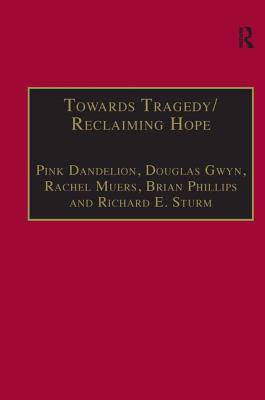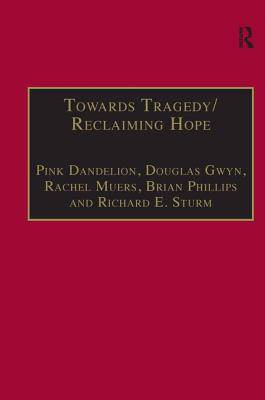
- Afhalen na 1 uur in een winkel met voorraad
- Gratis thuislevering in België vanaf € 30
- Ruim aanbod met 7 miljoen producten
- Afhalen na 1 uur in een winkel met voorraad
- Gratis thuislevering in België vanaf € 30
- Ruim aanbod met 7 miljoen producten
Zoeken
Towards Tragedy/Reclaiming Hope
Literature, Theology and Sociology in Conversation
Pink Dandelion, Douglas Gwyn, Rachel Muers, Brian Phillips
Hardcover | Engels
€ 120,45
+ 240 punten
Uitvoering
Omschrijving
The 'death of tragedy' in the modern era has been proposed and debated in recent years, largely in terms of literature and western culture in general. Today, any catastrophe or misadventure is likely to be labeled a 'tragedy', without any inference of a larger, transcendent horizon or providential design that the word once conveyed. This book offers new perspectives on the idea of the 'death of tragedy', taking England and the Religious Society of Friends (Quakers) in particular as a case study. Chapters focus on the origins of tragedy in ancient Greece, gospel and tragedy, the beginnings of the Quaker movement in seventeenth-century England, apocalyptic versus secularized experiences of time, Edwardian Quaker triumphalism, the search for English identity in postcolonial Britain, liberal Quakerism at the end of the twentieth century, and the promise and dilemma of postmodernity. The different disciplinary perspectives of the contributing authors bring literature, history, theology and sociology into a creative and revealing conversation. A Foreword by Richard Fenn introduces the book with an original and provocative meditation on tragedy and time.
Specificaties
Betrokkenen
- Auteur(s):
- Uitgeverij:
Inhoud
- Aantal bladzijden:
- 192
- Taal:
- Engels
Eigenschappen
- Productcode (EAN):
- 9780754607656
- Verschijningsdatum:
- 17/06/2004
- Uitvoering:
- Hardcover
- Formaat:
- Genaaid
- Afmetingen:
- 156 mm x 233 mm
- Gewicht:
- 452 g

Alleen bij Standaard Boekhandel
+ 240 punten op je klantenkaart van Standaard Boekhandel
Beoordelingen
We publiceren alleen reviews die voldoen aan de voorwaarden voor reviews. Bekijk onze voorwaarden voor reviews.











